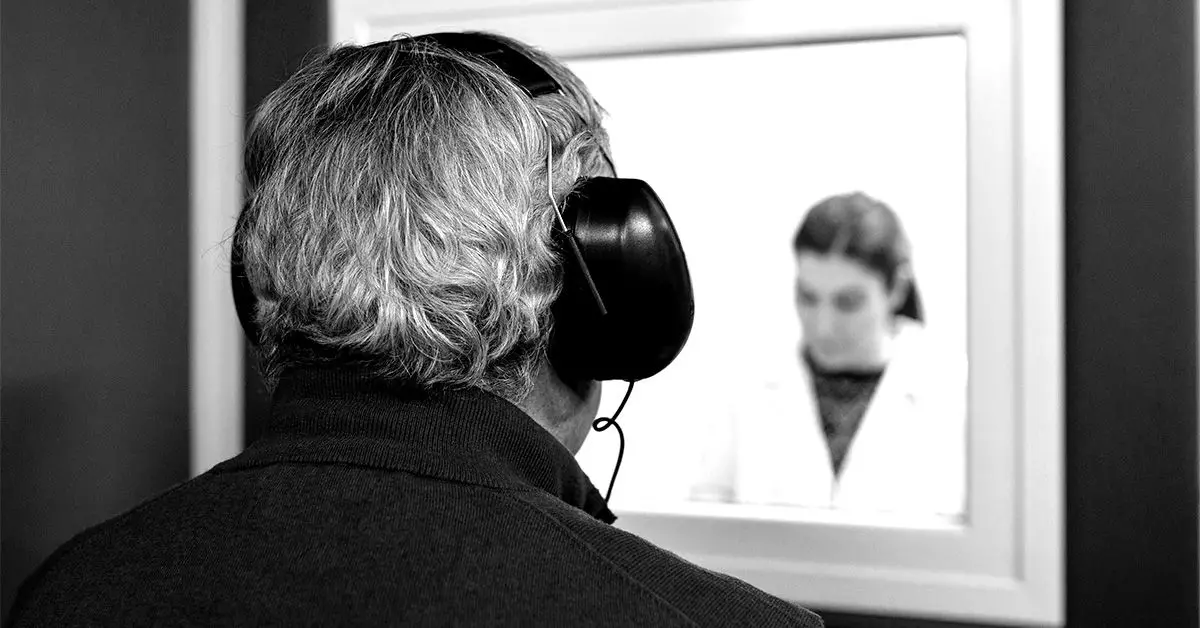Hearing loss is often trivialized, yet it has quietly reached epidemic proportions globally, particularly among the aging population. Recent studies reveal that approximately one-third of individuals over the age of 60 experience some degree of hearing loss. This is alarming, especially in light of evidence that links hearing impairment to an increased risk of dementia—a connection that should compel us to take the issue seriously.
As our demographic shifts towards an older population, the importance of addressing hearing loss becomes even more pressing. With the World Health Organization estimating that by 2050, over 900 million people may suffer from hearing impairment, the socioeconomic ramifications could extend beyond personal health, affecting families, communities, and healthcare systems altogether.
Understanding the Link to Cognitive Decline
Recent research spearheaded by the Johns Hopkins Bloomberg School of Public Health provides significant insights into the correlation between hearing loss and dementia. The study suggests that moderate hearing loss could elevate dementia risk by around 17%, while mild hearing loss raises the risk by approximately 16%. Jason R. Smith, the study’s lead researcher, highlights that the prevalence of hearing impairment among older adults may mean that a larger proportion of dementia cases could be related to hearing loss than previously recognized.
This underscores a pressing question: should we perceive hearing loss as merely a byproduct of aging, or is it a critical factor that warrants urgent intervention? Brain studies suggest that diminished auditory stimulation not only hampers communication but may also lead to changes in brain structures responsible for attention and executive functions, further accelerating cognitive decline.
The Social Dimensions of Hearing Loss
The ramifications of untreated hearing loss extend beyond cognitive health. Individuals suffering from impaired hearing often encounter profound social isolation as communication becomes difficult. This disconnection can lead to diminished cognitive engagement, setting off a vicious cycle that may exacerbate both mental and emotional health issues. It is worth noting that the brain, when hindered by auditory limitations, reallocates resources to manage the loss, inadvertently hindering memory and other cognitive faculties.
Dr. Steven Allder, a consultant neurologist, posits that the isolation fostered by hearing impairment may be a simpler yet powerful explanation for the dementia link. He argues that the decline in life quality due to poor auditory capabilities could lead to withdrawal from social interactions, which in turn diminishes cognitive engagement.
Proactive Solutions: Hearing Aids and Regular Assessments
The findings of the study further emphasize the importance of proactive measures in managing hearing health. Given that audiometric testing revealed almost two-thirds of participants experienced clinically significant hearing loss, regular hearing assessments become paramount, especially as misclassification rates rise post-70. Targeting early intervention could serve as a game-changer in not only maintaining hearing health but potentially staving off cognitive decline.
While the uncertainty remains around whether treating hearing loss can directly reduce dementia risk, there is significant evidence supporting the benefits of hearing aids in improving communication and overall quality of life. Smith suggests that these devices can especially aid those at high risk of cognitive decline, asserting that older adults should feel encouraged to address any hearing concerns with healthcare providers.
A Call for Holistic Healthcare Approaches
One critical takeaway from this body of research is the necessity for a more integrated approach to sensory health. Hearing and vision impairments frequently coexist among older adults, making it crucial to address both in comprehensive healthcare strategies. As we attempt to unravel the connections between sensory health and dementia, prioritizing a multi-faceted strategy could prove invaluable for prevention efforts.
The findings presented by these researchers are not just statistical numbers—they are calls to action for healthcare providers, researchers, and society at large. The prevailing narrative must shift from seeing hearing loss as an inevitable part of aging toward understanding it as a significant health issue with wide-reaching implications. By doing so, we can ensure that dignity, communication, and cognitive health remain intertwined elements of a holistic approach to aging gracefully and healthily.
Emphasizing Community Efforts
In a world increasingly interconnected yet paradoxically isolating, community initiatives play a vital role in advancing awareness about hearing health. Local health organizations can facilitate regular community screening events, while educational campaigns can help elevate the conversation surrounding auditory impairments. The need for collective action is evident as we strive to create environments where older adults feel valued and engaged, rather than isolated due to preventable conditions.
As we stand at the intersection of aging and cognitive health, one thing becomes crystal clear: addressing hearing loss is not merely a personal issue, but a societal imperative. The time to act is now, as the stakes continue to rise alongside an aging population.

